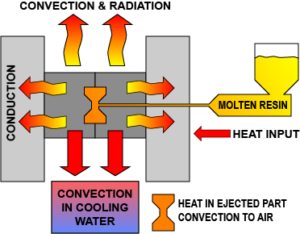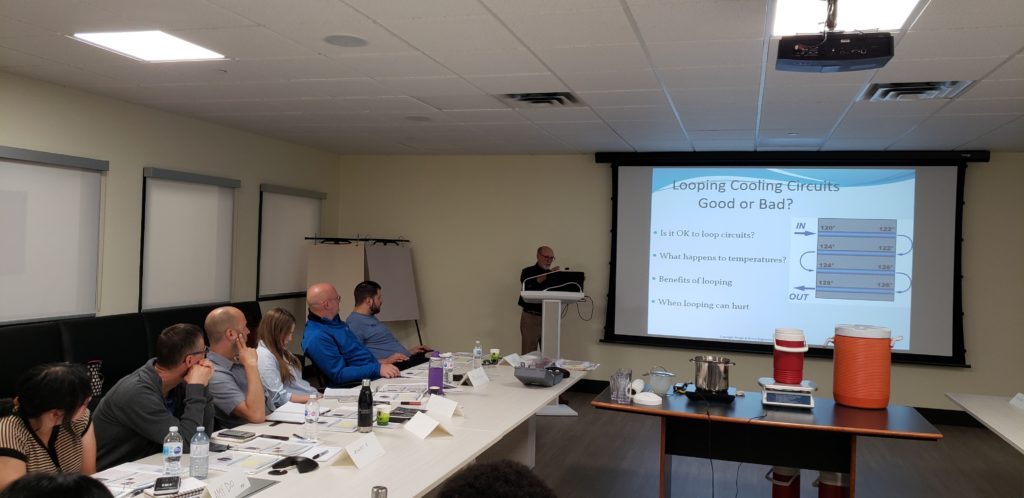Our next date for our scientific cooling class is scheduled for April 21st and 22nd, 2020. Don’t miss out on this unique program focused on the math behind the magic of injection mold cooling!
This 2-day course is tailored for designers, mold builders, tooling engineers, and mold technicians who want to understand and control the effects of mold cooling resulting in a more robust mold design, mold build, and molding process. Participants will learn the tools needed to analyze Heat Energy and the Mold Cooling Management required to produce consistent, profitable parts. Participants will learn to systematically challenge the design of new molds and uncover issues with existing molds through a development of best practices for Mold Cooling Management.
Sign up for our class : Enrollment Form
Make sure you make payment by March 15, 2020 in order to secure your spot.
What you’ll learn…
- Energy principles in relation to specific polymers.
- Understand Heat Transfer and Energy Flow effect part quality and cycle time.
- How to create heat budget and balance using energy flow calculations.
- Understand Reynolds Number’s relationship to Turbulent Flow.
- Turbulent Flow’s impact on sustainable molding practices.
- Study the 3 R’s of Scientific Cooling to develop and maintain efficient cooling set-up and processes.
- Review coolant delivery and distribution principles.Discover water chemistry’s effect on cooling efficiency.
- This course features “Hands-On” exercises to reinforce learning objectives.
- After successful class completion with a minimum test score of 70%, you will earn a Scientific Cooling Certificate
Bring your cooling questions to class for discussion

Sign up for our class : Enrollment Form
Get answers to your specific cooling challenges
Participants are encouraged to bring details of their cooling challenges for group discussion and analysis as time permits. Cooling details such as flow rate, cooling circuit diameter and length may be analyzed in class. Actual parts are welcome along with material specifications, melt temperature, ejection temperature and cycle times. This type of group discussion contributes to a valuable learning experience.


